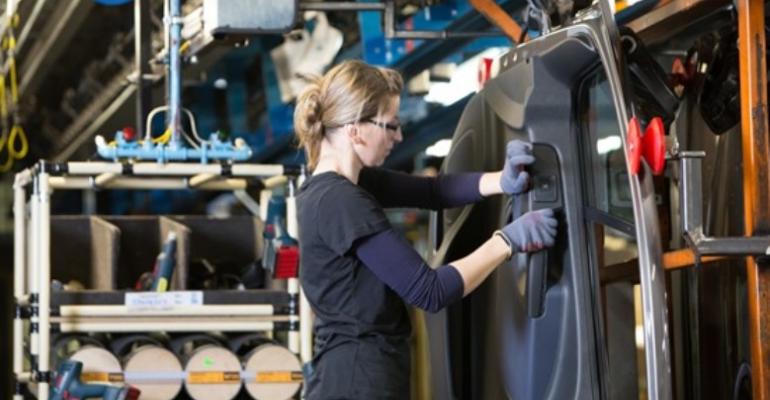A new study concludes up to 5,000 skilled-jobs vacancies in the U.K. automotive industry are having a significant impact on business operations.
The Automotive Council report says while the region’s automotive workforce is the most productive in Europe, the growth potential could be undermined by lack of new talent.
The report developed on behalf of the Automotive Industrial Partnership, is the result of a survey of 61 U.K. automotive companies, including eight automakers and 23 suppliers collectively employing about 83,200 people.
It identifies where the main gaps lie in skills availability, as well as how critical these gaps are.
Some 2,500 vacancies at the companies surveyed were found to be “difficult to fill” or “challenging” which, when extrapolated to the whole industry, puts the potential number of these jobs at almost 5,000.
The report says about 19% of the unfilled vacancies are identified as critical and are having a significant impact on company operations.
Among the jobs most difficult to fill, most are in engineering, with the two roles most in demand being design and production engineers. One result, the report says, is companies hiring temporary contractors and increasingly recruiting from abroad.
The Automotive Council launched the partnership in early 2015 to help ensure future skills needs are met for U.K. automakers and suppliers. It has introduced training programs and is developing an automotive apprenticeship matching service to retain more high-caliber apprentices in the industry.
PAGE BREAK: Productivity Gains Threatened
The report says the auto industry helps sustain almost 800,000 jobs across the U.K. and 2015 was the most productive year in a decade with 1.59 million vehicles built. U.K. labor productivity is the highest in Europe, having increased 40% since 2010, it notes.
But the report says all this success could be threatened by the lack of skilled engineers to fill new jobs despite companies’ efforts to increase training and apprenticeships.
“These are very significant findings which present a valuable basis for government and industry to jointly tackle this issue head-on and ensure that the growth potential of the industry in the coming years is fulfilled,” Jo Lopes, head of technical excellence-Jaguar Land Rover and chairman of the partnership, says in a statement.
Society of Motor Manufacturers and Traders CEO Mike Hawes says the industry already has invested heavily in apprenticeships and training for existing staff to grow and develop a new generation of skilled workers.
“The struggle to fill vacancies is holding back growth and opportunities for business, and it is essential that both government and industry work together quickly to identify ways to plug this gap,” Hawes says. “Future schemes must focus on quality not just quantity – and more support is needed to promote STEM (science, technology, engineering and mathematics) subjects in schools.”
Along with the need for new skilled personnel, many new training requirements have emerged alongside technological advances in the auto industry.
There are 71 different types of learning required for more than 20,000 people working in the industry – 15% of whom have an immediate need for new training. The most critical training requirements are in lean manufacturing (minimizing waste), advanced problem-solving and toolmaking.





